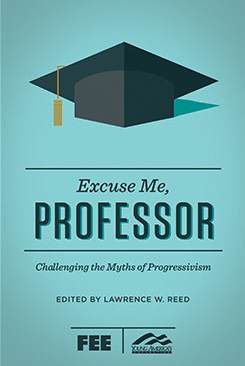Observations from a recent Foundation for Economic Education Column
 A few weeks ago, Jeffrey Tucker, writing for the longtime Freedom Philosophy organization, F.E.E., posed the question, “Why should it matter who the president is?” Then described the administrations of presidents Rutherford B. Hayes (1877-1881), James Garfield (1881), Chester A. Arthur (1881-1885), and Benjamin Harrison (1889-1893). Remarking that these presidents are often cited—especially by leftists and progressives—as poor ones because they didn’t do anything really BIG or ambitious, Mr. Tucker states:
A few weeks ago, Jeffrey Tucker, writing for the longtime Freedom Philosophy organization, F.E.E., posed the question, “Why should it matter who the president is?” Then described the administrations of presidents Rutherford B. Hayes (1877-1881), James Garfield (1881), Chester A. Arthur (1881-1885), and Benjamin Harrison (1889-1893). Remarking that these presidents are often cited—especially by leftists and progressives—as poor ones because they didn’t do anything really BIG or ambitious, Mr. Tucker states:
“These were not the presidents who “made history,” and good for them. Hardly anyone remembers them, which is to their credit. They are usually listed among the “worst” presidents, which is to say they didn’t cause giant upheavals. They inhabited the office at a time when the private sector was growing at incredible rates while the government was playing a relatively diminished role.”
Tucker’s well-taken point being that even if they had all been scoundrels, the federal government vis a vis the ‘private sector’ was like a grain of sand in one’s shoe—it had insignificant resources and Constitutionally proscribed (virtually no) legal power or authority. IOW, the average fellow could ignore the Washington mob with impunity. Not like today, when unconstitutional power-spewing chief executives have become a boulder in our footwear and a sledge hammer over our collective heads. Continue reading

